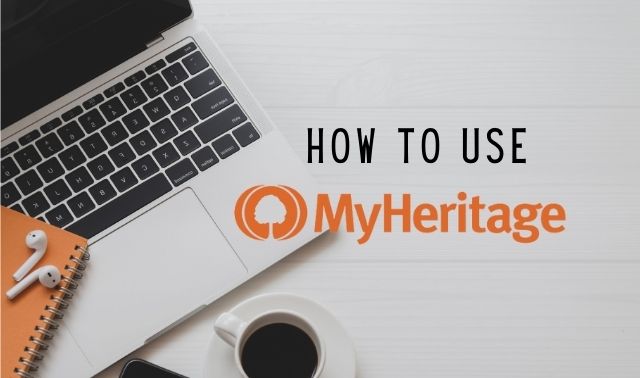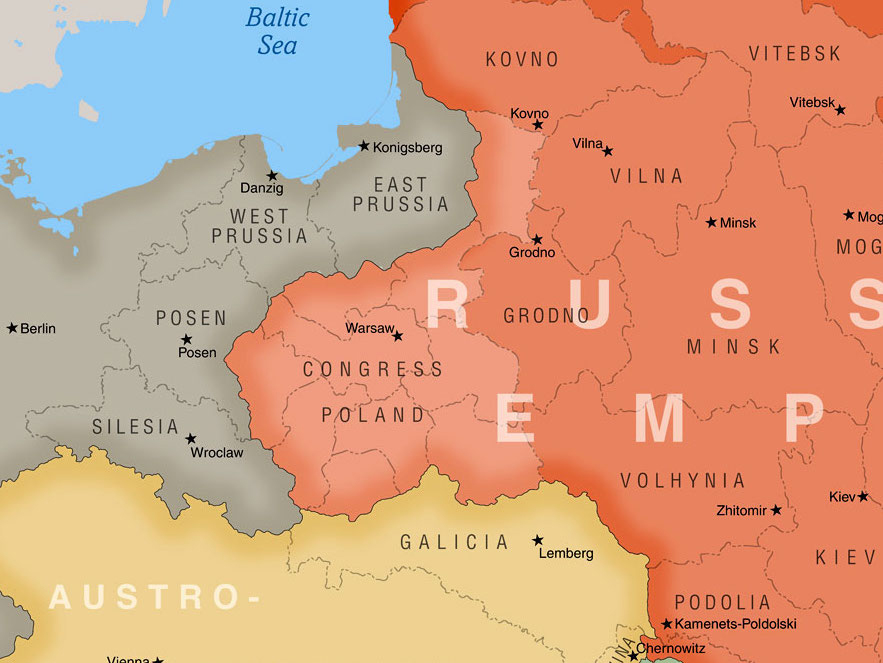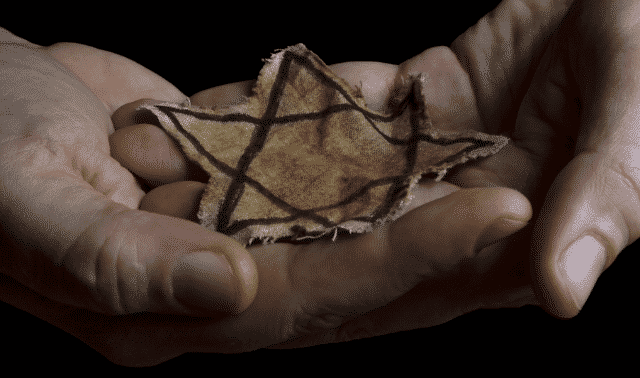
The first steps for finding your Jewish roots are the same as with any other ethnic group or faith: Start with the living generation and work backwards, consult with extended family, and gather civil and public records first.
But the key difference is setting your expectations. Researchers of European Jewish ancestors face extra roadblocks due to the Holocaust, pogroms, and the relatively late adoption of surnames in Jewish communities.
Fortunately, exciting advances in searchable databases and handy online tools have continued to emerge, making your Jewish roots more attainable than ever.
Starting a new project or returning to a stubborn brick-walled branch can seem overwhelming with so many websites to consult, but it doesn’t have to be with these useful Jewish genealogy websites and resources.
1. JewishGen
No Jewish genealogy search would be complete without consulting the myriad resources located on JewishGen. As the premier global home for Jewish genealogy, JewishGen provides free access to unique search tools and more than 30 million records, plus opportunities to connect with other researchers.
Where to begin in JewishGen depends on your family’s circumstances and what research you’ve already done. But you can access two valuable entry points right from the home page: the Search button for Unified Search across all of the site’s collections, and the Discover button for the JewishGen Communities Database. The latter identifies more than 6,000 towns and communities in Europe, North Africa, and the Middle East with various spellings or changed names.
You can search most collections on JewishGen by name, town or “any field.” Be sure to change the drop-down menu found in the second column labeled Search Type. You’ll have the option of selecting how closely you’d like results to match your terms: phonetically like, sounds like, starts with, exactly, and so on.
Note that these sound-matching systems are not the same as the Soundex used by the National Archives for names in English. Rather, Jewish genealogists developed these algorithms to address the unique letter-and-language combinations commonly found in Jewish naming.
Know that many of the primary collections on JewishGen are indexes compiled by volunteers that point to original records. They are not consistently linked to the source material; to access original records, you might have to hire a professional or visit a repository in person. (Though often requiring significant work to obtain, original records can provide more accurate information.)
2. One-Step Webpages by Stephen P. Morse
This bountiful set of tools, developed by Intel 8086 inventor and Jewish genealogist Stephen P. Morse, makes it easier to find records, translate foreign-language documents, and access maps and calendars.
In particular, Morse’s site has aids for handling the Hebrew and Yiddish language (under “Dealing with Characters in Foreign Alphabets”). You can also transliterate names between English and Hebrew or English and Russian, or convert between print and handwritten language in those languages.
The calendar-conversion tool allows conversions back and forth between the Gregorian, Julian and Jewish calendars. The latter is particularly useful for converting Jewish dates on gravestones in Hebrew or Yiddish into a secular date for retrieval of a civil death record.
3. Ancestry.com
Ancestry.com has built a large Jewish collection through partnerships with JewishGen, the United States Holocaust Memorial Museum, the American Jewish Joint Distribution Committee, the American Jewish Historical Society, Miriam Weiner Routes to Roots Foundation, and the Arolsen Archives.
From the site’s Jewish records landing page, you can search the entire database or access specific collections provided by JewishGen, such as the Jewish Community Locator and Jewish Name Variations. You’ll also find links to message boards about Jewish genealogy, or a place to sign up to help index millions of Holocaust records as part of the World Memory Project.
You can also consult Ancestry.com’s Card Catalog, which houses a list of the site’s more than 32,000 record collections. A keyword search for Jewish brings up more than 300 collections (most of them mainstream record collections). But a title search for the same brings up just over 100 more-relevant results.
Of course, some record sets contain large numbers of Jews but do not have Jewish in the title or as a keyword, making it necessary to search more broadly for collections from your ancestor’s place and time. One example is “Hesse, Germany Deaths, 1851–1958,” which includes thousands of Nazi labor and concentration camp deaths—many of them Jewish—as recorded in Lagerstandesamt (camp registry offices). Information can include occupation, maiden name, age, place of birth, date of birth, spouse and parents.
Jewish records on the site continue to grow in size and variety. In 2020, Ancestry.com and JewishGen added a names index for 50,000 Holocaust survivor interviews held by the USC Shoah Foundation. When considering the people mentioned in the interviews, that collection totals more than 650,000 names. They link to the Shoah Foundation’s Visual History Archive portal, where you can either watch about 4,000 video interviews or see entries’ biographical pages.
4. FamilySearch
Among the global genealogy giant websites, FamilySearch may have the most nonJewish records in which Jewish families are named. Many are browse-only and in foreign languages.
The catalog has more than 8,500 entries with the keyword Jewish, only 3,200 of which can be accessed online. One approach is to search the catalog by location, then drill down to a specific locale to find both Jewish and nonJewish original-language records that you can view from your device (as opposed to in a Family History Center). In addition to Jewish-specific records, FamilySearch has also put up many civil registration records that document all residents of an area, regardless of ethnicity or religion.
You can find other resources through the Help Center using a keyword search on Jewish. You’ll find a variety of online lessons, webinars with handouts, and FamilySearch Wiki articles on various Jewish genealogy topics.
Another notable feature is the Todd Knowles Collection, a compiled source that includes records for more than 1.4 million Jews in 170 countries. Particularly strong for British Jews, the collection is part of the Genealogies database, accessible from the drop-down menu. None are incorporated into the FamilySearch world tree; you have to search the Genealogies separately.
Keep in mind that not all of the records used in the Knowles Collection are available on FamilySearch, and there is no comprehensive list of sources publicly available at this time. But some primary sources include the Isobel Mordy Collection, vital records from the old Great Synagogue of London and Bevis Marks Synagogue, and Jewish burials from Turkey, Egypt, Latvia and England (including Willesden and Hoop Lane Cemeteries in London and Southern Cemetery in Manchester). Find more information.
5. MyHeritage
Another global megasite, MyHeritage has records both of specific Jewish populations as well as records from wider society. You can browse its catalog here. Many of the Jewish and Israeli records on MyHeritage (which is based in Israel) come from partnerships with the Israel Genealogy Research Association (IGRA), the Israeli State Archives and BillionGraves.
One of MyHeritage’s strongest assets is a Global Name Translation technology, which automatically translates names from 42 languages including Russian, Ukrainian, Polish, Czech, Hebrew and Yiddish. This allows searching in one language and receiving results in another—no other genealogy giant offers this.
Notably, MyHeritage (thanks to a partnership with BillionGraves) has digital records of 95% of gravestones in Israel’s cemeteries, searchable and indexed. And because of MyHeritage’s translation technology, you can search in English for names in this database, and images of gravestone inscriptions can be viewed in multiple languages.
6. Online Family Trees
With a discerning eye, you can build upon the research of other genealogists in online tree databases. These trees come in two varieties: “one-world” family trees such as FamilySearch, Geni and WikiTree that thousands of users collaborate on together, and trees created by individual users on sites like Ancestry.com, JewishGen’s Family Tree of the Jewish People, and MyHeritage.
Both types of trees have their pros and cons, but you must critically approach either before accepting information in them as fact. Did the user(s) provide citations for names, relationships, dates and places? Is there an attached record (or other evidence) you can review and evaluate yourself, or did the user rely on an index?
Also consider how conflicting information is dealt with. Collaborative family trees generally have a moderator who steps in to resolve disputes based on the strength of supporting evidence. But family trees created by individuals do not, and (in fact) one database can have multiple family trees for the same person—each with different details about his life.
On the other hand, because anyone can add to collaborative trees, the data there could be more easily corrupted by false information than in one personal, relatively tamper-proof tree.
7. Online Newspapers
Seasoned genealogists know the wealth of information that can be found in newspapers. Obituaries are perhaps the best-known family history feature, but you can also find details about your ancestors in gossip columns, birth or marriage announcements, and even general news stories.
Other genealogical golden nuggets are more colorful. For example, the Yiddish version of the US Forward newspaper (also known as Forverts, formerly The Jewish Daily Forward) published “A Gallery of Missing Husbands” in the earlier 20th century, meant to advertise men who had deserted their families. In addition to photographs, entries generally included full name and any aliases; age; place of origin; city of disappearance; year or time frame of disappearance; occupation; and year or time frame of immigration.
This gem has been indexed and is available on JewishGen’s USA Database, where you’ll also find indexes to Jewish papers ranging from Boston to Houston to Chicago.
Kenneth Mark’s Ancestor Hunt lists additional places you can find Jewish newspapers from more than two dozen US states. Access to many of them is free, though the page also links to Jewish newspapers on subscription sites such as Newspapers.com, Genealogy Bank, and ProQuest.
The list focuses on American newspaper collections, but also links to Compact Memory (German-language Jewish periodicals from German-speaking countries, circa 1806 to 1938) and Tel Aviv University and The National Library of Israel’s Historic Jewish Press collection (published in various countries, languages and time periods; the site itself is in Hebrew).
8. Blogs and Social Media
Thanks to the internet, help is only an email or Facebook post away, making it easier than ever to network with other researchers. The JewishGen Discussion Group, for example, features threads from more than 16,000 members on topics such as gravestone translations and surnames. And Ancestry.com has its own Jewish roots message board.
Facebook groups are active and filled with thousands of armchair experts offering expertise and opinions, though you’ll need a (free) Facebook account to access them. Some highlights include:
- Tracing the Tribe
- Jewish Genealogy Portal
- Jewish DNA for Genetic Genealogy and Family Research
- JewishGen on Facebook
Many bloggers also offer free advice on Jewish genealogy topics, often through a personal lens. Superstars include Philip Trauring’s “Blood and Frogs: Jewish Genealogy and More” and Lara Diamond’s “Jewnealogy.” The Israel Genealogy Research Association has a list of other blogs.
9. Societies
If you prefer face-to-face contact, consider attending the annual conference on Jewish genealogy hosted by the International Association of Jewish Genealogical Societies. IAJGS is an umbrella organization for dozens of Jewish genealogy societies worldwide, and its well-attended conference offers a variety of lectures, workshops, special exhibits and volunteering opportunities.
Local genealogy societies, too, have increased their online presence. Many offer free webinars (or webinars for dues-paying members); keep up with offerings at Conference Keeper, which offers a free weekly newsletter about upcoming events.
10. DNA Testing
Autosomal DNA tests, which have exploded in popularity in the past several years, can also provide hints about your Jewish heritage. Ashkenazi, Sephardic and other Jewish population samples have been collected by the major DNA testing websites, meaning you’ll likely be able to see them in your ethnicity estimates.
Ethnic-origin categories vary from company to company. AncestryDNA, for example, breaks its “European Jewish” results into a handful of subregions, while LivingDNA offers no special designation for Jewish ancestry.
And the companies’ samples will continue to be refined as databases grow, meaning your results may change over time. For example, MyHeritage DNA added a Genetic Groups feature in December 2020—including 55 Jewish Genetic Groups. Four of those were for Ethiopian Jewish communities, a reported region that’s currently unique to MyHeritage DNA.
Researchers who have Jewish ancestry outside of Europe will face additional difficulties. At time of writing, MyHeritage DNA and Family Tree DNA are the only services of the “Big Five” that provide regions for Sephardic Jewish, Mirazhi (Middle Eastern) Jewish and Yemenite Jewish.
A version of this article appeared in the May/June 2021 issue of Family Tree Magazine.
Other Jewish Genealogy Websites
Note: A version of this list appeared in an article by Schelly Talalay Dardashti in the May/June 2013 issue of Family Tree Magazine.
Avotaynu
Avotaynu: The International Review of Jewish Genealogy started in 1985 as a quarterly newsletter about Jewish genealogical issues. Also subscribe to the free e-newsletter “Nu? What’s New?” here and find other books and resources.
American Sephardi Federation

A membership organization dedicated to recording, remembering and rejoicing in the rich culture of Sephardic Jews.
Beth Hatefutsoth: Museum of the Jewish People
This Israeli museum keeps track of Jewish roots from cultures around the globe. The Douglas E. Goldman Genealogy Center has an extensive computerized database. You can upload your own family tree to the database for free.
Central Database of Shoah Victims’ Names
Survivors searching for relatives and vice versa come together on this site.
Consolidated Jewish Surname Index
Avotaynu’s gateway to information about 700,000 surnames, mostly Jewish, that appear in 42 online databases.
Cyndi’s List—Jewish
Links to more than 760 sites, books, audiotapes, and much more.
Czestochowa-Radomsko Area Research Group
Search engine with access to a large online collections of archival Holocaust data.
DoroTree
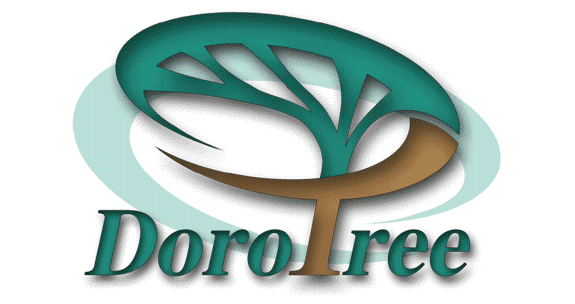
“Dorot” means “roots” in Hebrew, and this site offers a GEDCOM program that also types and prints out in Hebrew. You don’t need a Hebrew-language operating system to use the program, so it’s convenient for those who wish to share their heritage with relatives in Israel or those who have ancestors best represented with Hebrew characters, the same characters used for Yiddish. The site has a free demo and more web links.
Foundation for the Advancement of Sephardic Studies and Culture
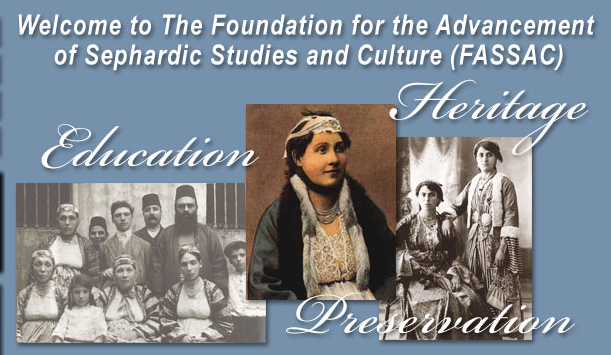
Resources and publications for Sephardic Jewish culture, history and genealogy.
Genealogy Resources on the Internet: Jewish Mailing Lists
Connect with other researchers via email.
Genealogy Indexer
Adds full-text and Soundex search capabilities to important online genealogical resources.
Judaism 101: Jewish Names
Dispelling surname myths and explaining given-name practices.
Les Fleurs d’ Orient Project
Genealogies of major Sephardi Families from the Ottoman Empire and beyond.
Museum of Jewish Heritage
Billed as a “living memorial to the Holocaust,” the New York City museum celebrates and preserves 20th-century Jewish life and culture. Great for those who want an overview of modern Jewry, and you may even find an artifact connected to your family.
Nahman Genealogy
Family history of the Nahmans of Gerona and history of the Jews of Spain.
SephardicGen.com
Resources for tracing Sephardic Jews.
Society for Crypto-Judaic Studies

This society “fosters the research of the historical and contemporary development of crypto–Jews of Iberian origin [and] provides a venue for the descendants of crypto–Jews, scholars, and other interested parties to network and discuss pertinent issues.”
Southern Jewish Historical Society
Works to advance research on the Jewish experience in the American South.
Tracing the Tribe
Though no longer regularly updated, Schelly Talalay Dardashti’s blog is a must-read for news and resources about tracing Jewish ancestors.
US Holocaust Memorial Museum
This Washington, DC, institution and its extensive archive and artifact collection have grown to staggering proportions, and its holdings can be searched and viewed online. There are also web exhibits, academic journals, visitor information and more.
Yad Vashem: The World Holocaust Remembrance Center
This museum dedicated to remembering the Holocaust has in-depth historical information, news on the International Tracing Service (located in Bad Arolsen, Germany, the ITS holds concentration camp-related records the Allies gathered after World War II), a Shoah list of Holocaust victims, historical photo database and more.
Last updated: March 2025


